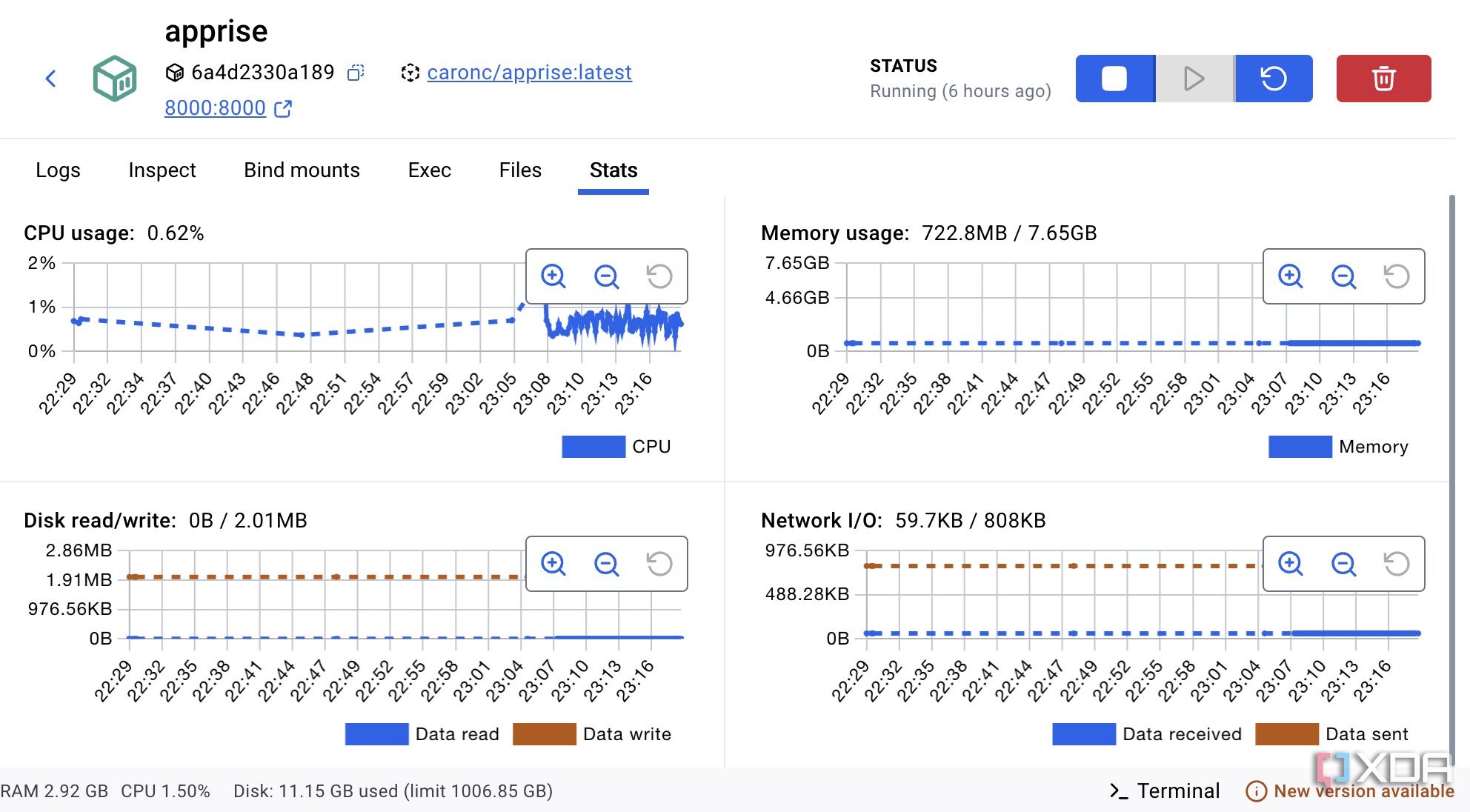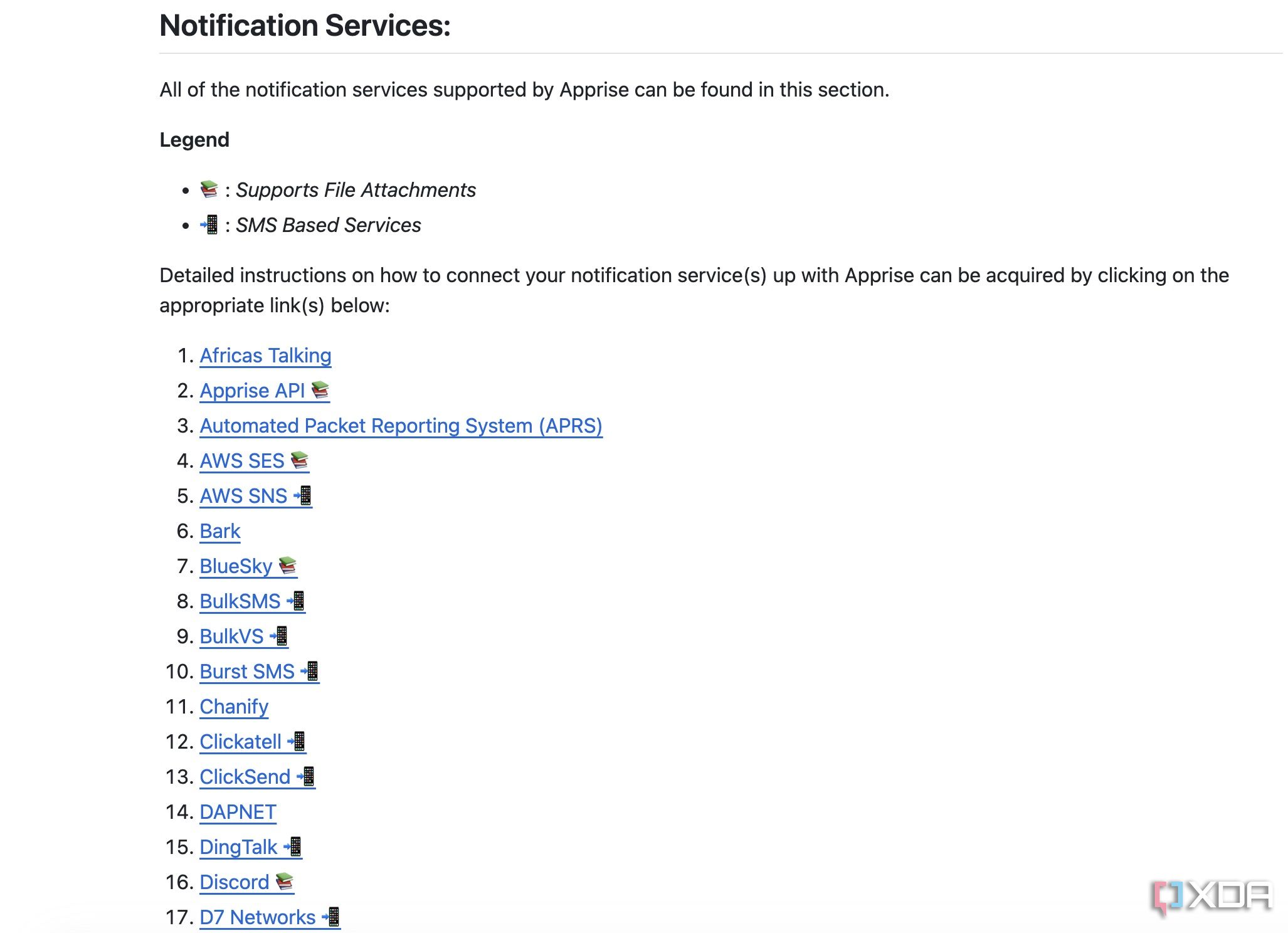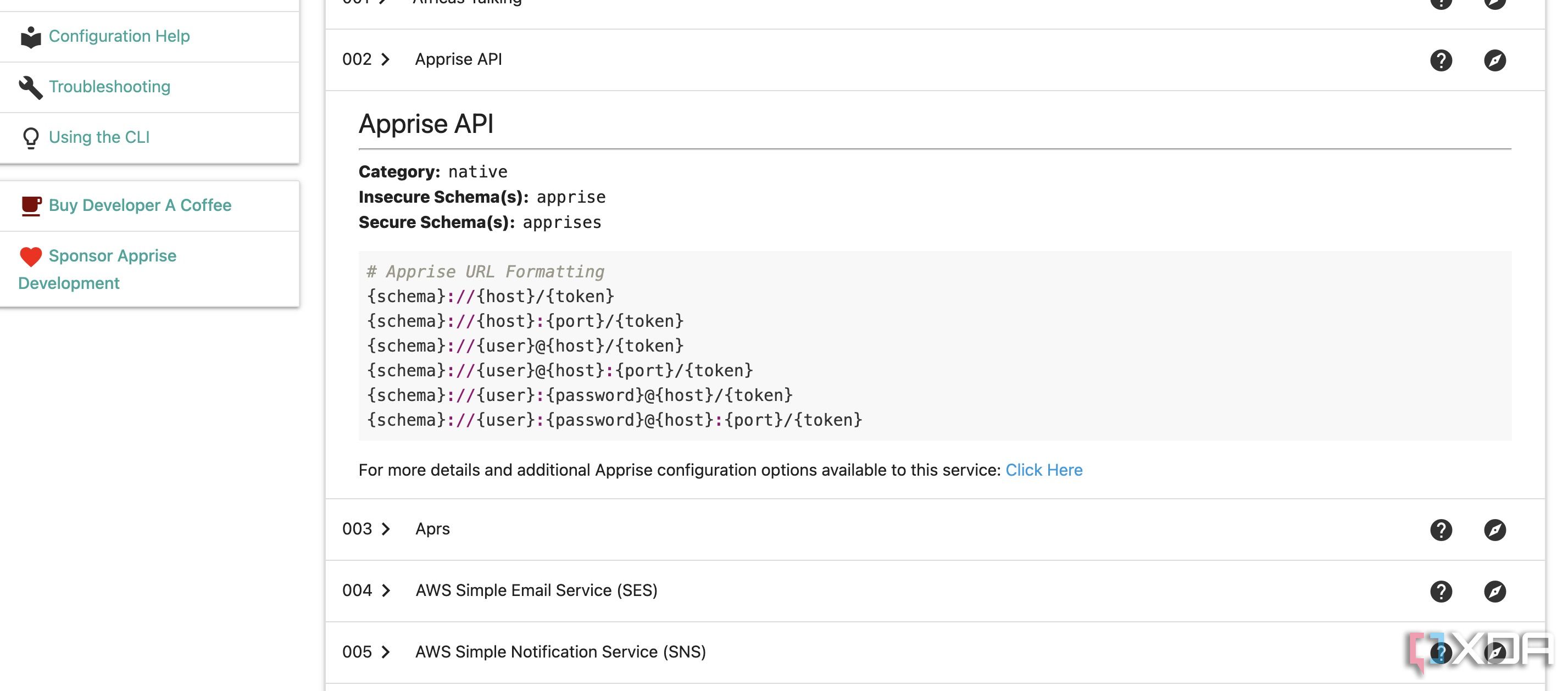Getting your alerts and notifications to the right place, at the right time, and through the relevant channel can feel like a challenging task. While tools like ntfy and Gotify are popular for self-hosted push notifications, there is another powerful contender that often goes overlooked: Apprise. This versatile notification library offers a comprehensive solution for sending alerts to virtually any notification service available. Here are the compelling reasons why Apprise sets itself apart from ntfy and Gotify, and how it has become my preferred choice.

Related
Forget about Portainer, I use this simple tool to manage all my Docker containers on my NAS
I use Dockge to manage all my Docker containers, and I won't look back (except in some instances).
4 A lightweight solution
Hardly consumes CPU on your device

One of the biggest headaches with self-hosted tools can be their resource footprint. Sometimes, I install a tool for testing and within no time, my server starts groaning under the load (looking at you, Docmost and Many Notes). That’s why I was impressed when I first started using Apprise.
In my limited time of testing, it barely consumes system resources. I ran its own API server in a Docker container, and it’s been performing flawlessly without breaking a sweat. This is a huge deal as my machine has low-end specs (where every megabyte of RAM and CPU cycle counts). Also, it has excellent response times.
For instance, when your application or script needs to send a notification, you don’t want to pause and wait for the notification to be delivered to Discord, email, or Telegram. It’s a subtle but impactful difference that makes Apprise feel responsive and reliable to use.
3 Supports a range of notification services
One notification library to rule them all

When I first started exploring notification solutions for my various projects and home lab setups, I ran into a common problem. I wanted to send an alert to my Telegram group for critical system errors, but also get an email for daily summaries and a Discord message for specific application events.
Without Apprise, I need to manage multiple libraries, authentication methods, and API calls. It was a mess and time-consuming just to set up basic alerts. Apprise supports 110+ different notification services, from popular chat apps like Discord, Slack, and Telegram to traditional channels like email and SMS. I was surprised to see support for niche services like Bluesky or specific IoT platforms.
Instead of needing to integrate and maintain separate code for each notification channel, I just need to learn Apprise’s simple and unified API. Whether I decide to send alerts to a new service like Pushbullet or to an old-school ntfy server, I don’t need to rewrite my notification logic. I simply change an Apprise URL, and it just works. This can free up countless hours and let me focus on the core functions of my projects.

Related
6 best self-hosted tools I have in my network stack
My networking setup is incomplete without these neat utilities
2 Rich feature set for message handling
Including support for emojis
Apprise doesn’t just get a message from point A to point B. It offers rich features for message handling as well. It ensures that the message arrives in the best possible format for the destination. Let’s talk about emoji support first. It might seem like a small thing, but a well-placed emoji can convey useful information at a glance.
For instance, if my home server successfully completes its nightly backup, a simple ‘Backup successful with a checkmark emoji’ alert is far more effective than ‘Backup successful’ text. Such a little touch adds so much personality and clarity. You need to get creative with it.
And then there are file attachments. This feature is another handy add-on for different tasks. While some notification services (like ntfy or Gotify) are designed for text-based push alerts, Apprise’s ability to send files to supported services is powerful.
Apprise also supports inputs of Markdown, HTML, and normal text, and it can convert between these as per the endpoint. If you send a very long message to a service with a strict character limit, Apprise can split it into multiple messages. It ensures that you don’t lose critical information just because of the character limit.
1 Advanced features
Technically superior and different from others

Apprise offers several smart features to streamline the entire notification process. It offers a universal address book for notifications. Suppose you want to send a message to someone on Telegram, then an email to a colleague, and a quick note on Discord. With Apprise, you don’t need to learn different address formats for each of those apps.
The service offers a simple and consistent way of listing where to send notifications. If you are a pro and have a specific demand (beyond the supported services from Apprise), you have the flexibility to build your own custom module. I also appreciate how there is a dedicated wiki for each service from the developer. You can find it here and see if a specific service supports emojis, file attachments, character limit, and more.
Simplify your communication
There is no denying that ntfy and Gotify stand on their own. However, Apprise has proved to be an ideal choice for anyone needing a robust, flexible, and comprehensive notification solution. It’s lightweight, supports a wide array of services, and can be a great tool for monitoring and general communication. If you are looking to streamline your notification workflow, I highly recommend you to give Apprise a try.
Uptime Kuma is another neat tool in your self-hosting setup. Check out our dedicated post to learn more about it.

.png)










 English (US) ·
English (US) ·